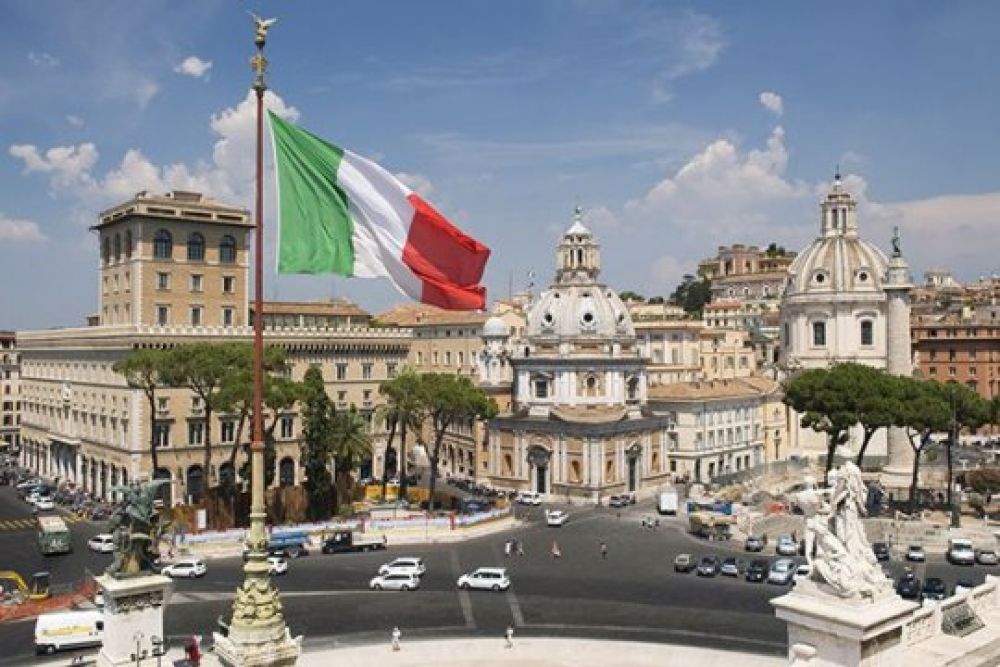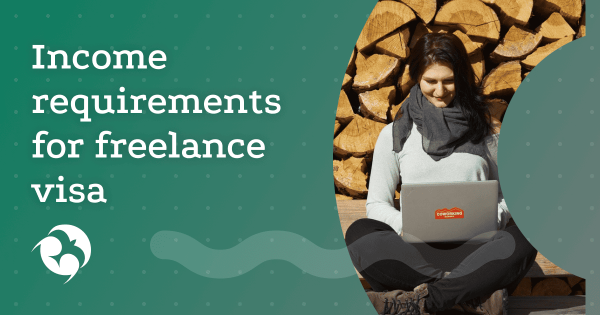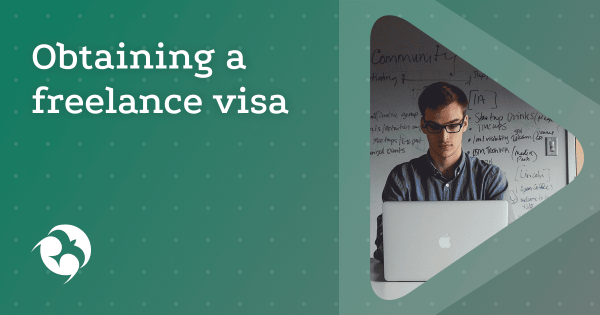In the complex process of obtaining a residence permit in Italy for financially independent individuals, professional support from experienced immigration consultants is especially important. Our team specializes in this program and helps to successfully obtain the desired status. We provide qualified support throughout the entire process – from the initial consultation to obtaining a resident card in Italy.
Legal basis of the program
Residenza Elettiva has been in effect since 1999 on the basis of Presidential Decree No. 394. In essence, this is a national visa category D, intended for wealthy foreigners who are able to financially support themselves in Italy without hired work.
A residence permit is available to citizens of any country, including Russians, who meet the financial criteria. A critical requirement of the program is that the income must be passive and come from sources not related to labor activity. Such sources include:
- Real estate rental income;
- Dividends on securities;
- Interest on bank deposits;
- Pension payments;
- Royalties;
- Investment income.
Program benefits
- Quickly obtain European residency. The process takes from 4 months with proper preparation of documents.
- The right to stay in any EU country for up to 90 days every 180 days without additional visas.
- The spouse and children receive the same status at the same time as the main applicant.
- The possibility of obtaining permanent residence after 5 years and citizenship after 10 years.
- No requirements for purchasing real estate, long-term rent is sufficient.
- The possibility of unlimited extension subject to compliance with the program conditions.
Key requirements
The minimum passive income is €31,160 per year for the main applicant. If the applicant receives a residence permit together with his family, the income requirement increases by 100% for each relative. The most important restriction of the program is a complete ban on work in Italy. Applicants must secure housing in the country, and it is not necessary to buy real estate – a long-term lease agreement is sufficient. Health insurance remains a mandatory requirement for the entire duration of the status.
Procedure
The process consists of 2 main stages. The first is obtaining a national visa D at the Italian consulate. The second stage begins after entering Italy: within 8 days, you must submit documents for a residence permit to the local questura. Officially, the application is reviewed within 60 working days, although in practice it may take longer.
Requirements for presence in the country
Formally, the program does not establish a minimum period of presence, but there are practical restrictions. Absence from the country for more than 6 months in a row may result in refusal to extend. To maintain your status, it is recommended to spend at least 183 days a year in Italy.
After 5 years of legal residence, it is possible to obtain a permanent residence permit (PR). To do this, you must confirm your knowledge of the Italian language at level A2, a stable income, and the availability of suitable housing. The path to Italian citizenship opens after 10 years of residence with a residence permit. In this case, you must know the language at level B1, confirm your income for the last 3 years, and have no criminal record.
Cost of registration
The financial basis of the program is the requirement for a passive income of at least €31,160 per year for the main applicant. A mandatory element is housing in Italy – purchase of real estate or long-term rent.
Professional support in obtaining status costs €15,000 for one applicant and up to 4 family members and €3,000 for each additional one. This amount covers full legal support of the process from document preparation to obtaining a residence permit card.
State duties and mandatory fees
The consular fee for a national visa D is €116 for each family member. This is a mandatory payment when submitting documents to the Italian consulate, which is not refundable in case of refusal. When applying in Italy, a complex fee of €116 is paid. The fee for issuing a residence permit is 130 € for each family member.
Additional costs
The mandatory health insurance for a D visa costs from 1,200 € per year for each family member. The minimum coverage should be 30,000 €. Translations of documents into Italian are becoming a significant expense. Notarized translation of one document costs from 30 to 65 €.
Putting an apostille on documents costs from 25 € for standard terms, up to 130 € if an express apostille is required. Bank statements confirming income and financial status are usually provided by banks free of charge or for a symbolic fee of 1-5 €. However, for immigration purposes, an extended certificate of cash flow for the year may be required, the cost of which reaches 20 €.
Step-by-step application process
The procedure for obtaining an Italian residence permit for financially independent individuals unfolds in 2 main stages: first a visa, then the residence permit itself. The entire process takes about 6 months, although individual stages may be extended or, conversely, take place faster than expected.
- Preparation of documents. At this stage, all necessary certificates, translations and certifications are collected. Applicants prepare income documents, proof of housing, a certificate of no criminal record and health insurance. All documents are translated into Italian and certified by a notary with an apostille.
- Submission of documents to the consulate. Applicants make an appointment at the Italian consulate and submit a full package of documents for a national visa D. Consulate employees conduct an initial check of the documents and may request additional certificates. After submission, the applicant receives a receipt with a case number to track the status of the review.
- Review of the application by the consulate. The official period for reviewing documents is up to 90 working days. If the decision is positive, the applicant is invited to have the visa pasted into the passport. The national visa D is valid for 1 year and allows entry to Italy to apply for a residence permit.
- Entry to Italy and submission of an application for a residence permit. After entry, applicants have exactly 8 days to submit documents. You must contact the nearest Italian post office, where they will issue a special envelope “KIT” with application forms. The postal worker checks the completed forms and issues a richevuta – a temporary certificate that replaces the residence permit until you receive a plastic card.
- Biometrics in the questura. After submitting documents by mail, applicants are called to the questura (local police) to submit biometric data. At the police station, fingerprints are taken, a photo is taken and signatures are collected to produce an electronic card. Children under 12 are exempt from fingerprinting.
- Waiting for and receiving the card. The official deadline for producing a resident card is 60 working days. When the card is ready, the applicant is notified by SMS or letter. The finished card is picked up at the same questura office where fingerprinting took place.
- Residence registration. The final step is registration at the place of residence in the local municipality. To do this, apply to the passport office of the commune (Ufficio Anagrafe) with an application for registration. The procedure allows you to obtain a residence certificate, which is necessary for extending the status and other administrative procedures.
Our team helps with obtaining a residence permit and is also ready to analyze refusal cases. The secret of our success is in detailed knowledge of all the nuances of Italian immigration legislation. This guarantees compliance with all procedural requirements and minimizes the risks of refusal.
Risks and ways to minimize them
The most common reason for consulate refusals is technical errors in documents, which account for up to 40% of negative decisions. Incorrectly completed forms become a stumbling block even for wealthy applicants with an impeccable reputation.
A poor translation can distort the meaning of income certificates or change the legal meaning of documents. For example, an inaccurate translation of a certificate from a pension fund can create the impression of instability of the applicant’s income, which will be grounds for refusal.
Currency fluctuations create additional risks for applicants with income in rubles or other currencies. The depreciation of the national currency may result in the actual income in euros being lower than the required minimum of €31,160 per year. Consulates recalculate income at the exchange rate on the date of submission of documents, which may be an unpleasant surprise for applicants.
Violation of procedural requirements entails serious consequences. However, understanding the specifics of the work of various consulates helps to choose the optimal application strategy. Our approach to minimizing risks includes a preliminary examination of documents before submitting to the consulate. This allows us to identify potential problems at an early stage and eliminate them without wasting time.
Comparison of programs in different countries
In Europe, for wealthy foreigners wishing to obtain a residence permit without work obligations, in addition to Italy, Portugal, France and Spain offer residence permits. The choice of program depends on the personal priorities and capabilities of the applicant.
Comparison table of requirements
| Criteria | Italy (Residenza Elettiva) | Spain (No Lucrativa) | France (Visiteur) | Portugal (D7) |
| Minimum annual income | €31,160 | €28,800 | 21,600€ | 10,440€ |
| Spouse supplement | +100% | +7,200€ | For the maintenance of a spouse (at least 15%) and each minor child (about 10%) | +50% – €5,220 |
| Child surcharge | +100% | +€7,200 | for a minor child (approx. 10%) | +30% – €3,132 |
| Residence required | Not required. 183 days for renewal | 183 days | 183 days for renewal | 1.5 consecutive years or 16 months in total over two years + proof of funds |
| Right to work | Prohibited | Prohibited | Prohibited | Prohibited |
| Doing Business | Prohibited | Dividends Only | Prohibited | Allowed |
| Term first residence permit | 1 year | 1 year | 1 year | 2 years |
| Path to citizenship | 10 years | 10 years | 5 years | 5 years |











